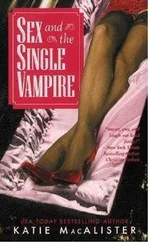Richard Burton - Vikram and the Vampire
Здесь есть возможность читать онлайн «Richard Burton - Vikram and the Vampire» — ознакомительный отрывок электронной книги совершенно бесплатно, а после прочтения отрывка купить полную версию. В некоторых случаях можно слушать аудио, скачать через торрент в формате fb2 и присутствует краткое содержание. Жанр: foreign_antique, foreign_prose, на английском языке. Описание произведения, (предисловие) а так же отзывы посетителей доступны на портале библиотеки ЛибКат.
- Название:Vikram and the Vampire
- Автор:
- Жанр:
- Год:неизвестен
- ISBN:нет данных
- Рейтинг книги:3 / 5. Голосов: 1
-
Избранное:Добавить в избранное
- Отзывы:
-
Ваша оценка:
- 60
- 1
- 2
- 3
- 4
- 5
Vikram and the Vampire: краткое содержание, описание и аннотация
Предлагаем к чтению аннотацию, описание, краткое содержание или предисловие (зависит от того, что написал сам автор книги «Vikram and the Vampire»). Если вы не нашли необходимую информацию о книге — напишите в комментариях, мы постараемся отыскать её.
Vikram and the Vampire — читать онлайн ознакомительный отрывок
Ниже представлен текст книги, разбитый по страницам. Система сохранения места последней прочитанной страницы, позволяет с удобством читать онлайн бесплатно книгу «Vikram and the Vampire», без необходимости каждый раз заново искать на чём Вы остановились. Поставьте закладку, и сможете в любой момент перейти на страницу, на которой закончили чтение.
Интервал:
Закладка:
The lover and the nurse were equally distressed at having taken the advice of the young minister, till he explained what the crafty damsel meant. ‘When she smeared the sandal on her ten fingers,’ he explained, ‘and struck the old woman on the face, she signified that when the remaining ten moonlight nights shall have passed away she will meet you in the dark.’ At the same time he warned his master that to all appearances the lady Padmavati was far too clever to make a comfortable wife. The minister’s son especially hated talented, intellectual, and strong-minded women: he had been heard to describe the torments of Naglok 60 60 Snake-land; the infernal region.
as the compulsory companionship of a polemical divine and a learned authoress, well stricken in years and of forbidding aspect, as such persons mostly are. Amongst womankind he admired – theoretically, as became a philosopher – the small, plump, laughing, chattering, unintellectual, and material-minded. And therefore – excuse the digression, Raja Vikram – he married an old maid, tall, thin, yellow, strictly proper, cold-mannered, a conversationist, and who prided herself upon spirituality. But more wonderful still, after he did marry her, he actually loved her – what an incomprehensible being is man in these matters!
To return, however. The pradhan’s son, who detected certain symptoms of strong-mindedness in the Princess Padmavati, advised his lord to be wise whilst wisdom availed him. This sage counsel was, as might be guessed, most ungraciously rejected by him for whose benefit it was intended. Then the sensible young statesman rated himself soundly for having broken his father’s rule touching advice, and atoned for it by blindly forwarding the views of his master.
After the ten nights of moonlight had passed, the old nurse was again sent to the palace with the usual message. This time Padmavati put saffron on three of her fingers, and again left their marks on the nurse’s cheek. The minister’s son explained that this was to crave delay for three days, and that on the fourth the lover would have access to her.
When the time had passed the old woman again went and inquired after her health and well-being. The princess was as usual very wroth, and having personally taken her nurse to the western gate, she called her ‘Mother of the elephant’s trunk,’ 61 61 A form of abuse given to Durga, who was the mother of Ganesha (Janus); the latter had an elephant’s head.
and drove her out with threats of the bastinado if she ever came back. This was reported to the young statesman, who, after a few minutes’ consideration, said, ‘The explanation of this matter is, that she has invited you to-morrow, at night-time, to meet her at this very gate.’
When brown shadows fell upon the face of earth, and here and there a star spangled the pale heavens, the minister’s son called Vajramukut, who had been engaged in adorning himself at least half that day. He had carefully shaved his cheeks and chin; his mustachio was trimmed and curled; he had arched his eyebrows by plucking out with tweezers the fine hairs around them; he had trained his curly musk-coloured love-locks to hang gracefully down his face; he had drawn broad lines of antimony along his eyelids, a most brilliant sectarian mark was affixed to his forehead, the colour of his lips had been heightened by chewing betel-nut —
‘One would imagine that you are talking of a silly girl, not of a prince, fiend!’ interrupted Vikram, who did not wish his son to hear what he called these fopperies and frivolities.
– and whitened his neck by having it shaved (continued the Baital, speaking quickly, as if determined not to be interrupted), and reddened the tips of his ears by squeezing them, and made his teeth shine by rubbing copper powder into the roots, and set off the delicacy of his fingers by staining the tips with henna. He had not been less careful of his dress: he wore a well-arranged turban, which had taken him at least two hours to bind, and a rich suit of brown stuff chosen for the adventure he was about to attempt, and he hung about his person a number of various weapons, so as to appear a hero – which young damsels admire.
Конец ознакомительного фрагмента.
Текст предоставлен ООО «ЛитРес».
Прочитайте эту книгу целиком, купив полную легальную версию на ЛитРес.
Безопасно оплатить книгу можно банковской картой Visa, MasterCard, Maestro, со счета мобильного телефона, с платежного терминала, в салоне МТС или Связной, через PayPal, WebMoney, Яндекс.Деньги, QIWI Кошелек, бонусными картами или другим удобным Вам способом.
1
Metamorphoseon, seu de Asino Aureo, libri XI. The well known and beautiful episode is in the fourth, the fifth, and the sixth books.
2
This ceremony will be explained in a future page.
3
A common exclamation of sorrow, surprise, fear, and other emotions. It is especially used by women.
4
Quoted from View of the Hindoos , by William Ward, of Serampore (vol. i. p. 25).
5
In Sanskrit, Vétála-pancha-Vinshatí . ‘Baital’ is the modern form of ‘Vétála.’
6
In Arabic, Bidpai el Hakim .
7
Dictionnaire philosophique , sub v. ‘Apocryphes.’
8
I do not mean that rhymes were not known before the days of El Islam, but that the Arabs popularised assonance and consonance in Southern Europe.
9
‘Vikrama’ means ‘valour’ or ‘prowess.’
10
Mr. Ward of Serampore is unable to quote the names of more than nine out of the eighteen, namely: Sanskrit, Prakrit, Naga, Paisacha, Gandharba, Rakshasa, Ardhamágadi, Apa, and Guhyaka – most of them being the languages of different orders of fabulous beings. He tells us, however, that an account of these dialects may be found in the work called Pingala .
11
Translated by Sir Wm. Jones, 1789; and by Professor Williams, 1856.
12
Translated by Professor H. H. Wilson.
13
The time was propitious to savans. Whilst Vikramaditya lived, Mágha, another king, caused to be written a poem called after his name. For each verse he is said to have paid to learned men a gold piece, which amounted to a total of 5,280 l. – a large sum in those days, which preceded those of Paradise Lost . About the same period, Karnáta, a third king, was famed for patronising the learned men who rose to honour at Vikram’s court. Dhavaka, a poet of nearly the same period, received from King Shriharsha the magnificent present of 10,000 l. for a poem called the Ratna-Malá .
14
Lieut. Wilford supports the theory that there were eight Vikramadityas, the last of whom established the era. For further particulars, the curious reader will consult Lassen’s Anthologia , and Professor H. H. Wilson’s Essay on Vikram , (New) As. Res. ix. 117.
15
History tells us another tale. The god Indra and the King of Dhara gave the kingdom to Bhartari-hari, another son of Gandharba-Sena, by a handmaiden. For some time, the brothers lived together; but presently they quarrelled. Vikram being dismissed from court, wandered from place to place in abject poverty, and at one time hired himself as a servant to a merchant living in Guzerat. At length, Bhartari-hari, disgusted with the world on account of the infidelity of his wife, to whom he was ardently attached, became a religious devotee, and left the kingdom to its fate. In the course of his travels, Vikram came to Ujjayani, and finding it without a head, assumed the sovereignty. He reigned with great splendour, conquering by his arms Utkala, Vanga, Kuch-behar, Guzerat, Somnat, Delhi, and other places; until, in his turn, he was conquered and slain by Shalivaban.
Читать дальшеИнтервал:
Закладка:
Похожие книги на «Vikram and the Vampire»
Представляем Вашему вниманию похожие книги на «Vikram and the Vampire» списком для выбора. Мы отобрали схожую по названию и смыслу литературу в надежде предоставить читателям больше вариантов отыскать новые, интересные, ещё непрочитанные произведения.
Обсуждение, отзывы о книге «Vikram and the Vampire» и просто собственные мнения читателей. Оставьте ваши комментарии, напишите, что Вы думаете о произведении, его смысле или главных героях. Укажите что конкретно понравилось, а что нет, и почему Вы так считаете.












